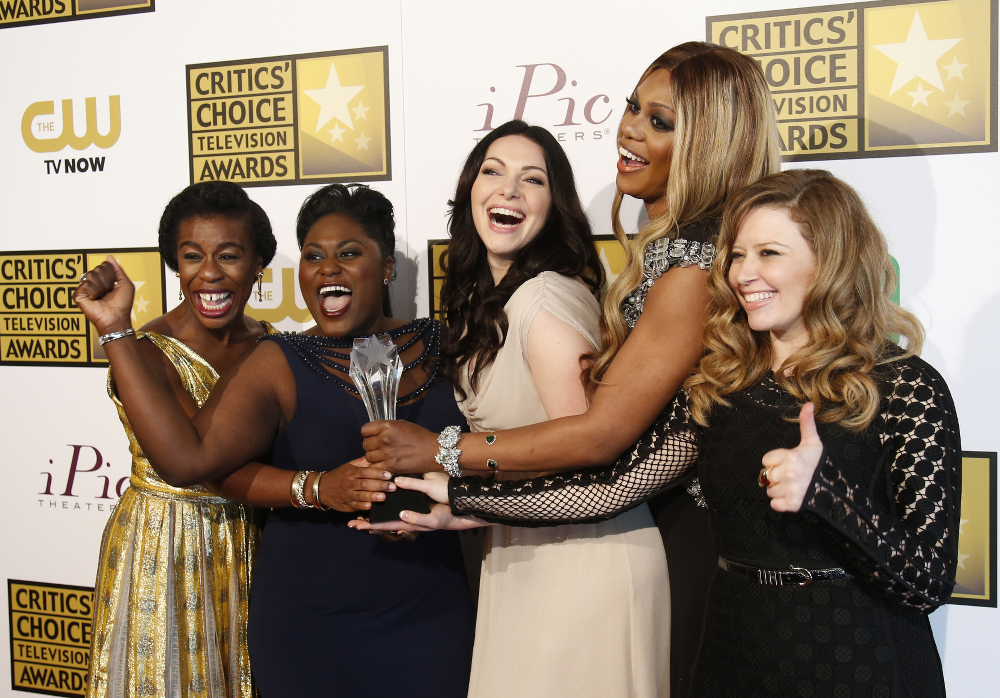Netflix co-found and chief executive Read Hastings announced that the streaming service has gone global and going live in 130 more countries.
US on-demand Internet movie and television streaming service Netflix is now available in South Africa. Its co-founder and chief executive Read Hastings announced at CES 2016, a global consumer electronics and consumer technology tradeshow in Las Vegas, that the streaming service has now gone global in 130 more countries around the world. He also confirmed that Netflix would begin offering HDR (high dynamic range) content later this year, BBC reported.
Netflix is now available in more than 190 countries, including Nigeria, Kenya, Morocco, Mozambique, Spain, Sweden and Thailand, to name a few. China, however, is still left out in the cold. The streaming service still not available China, North Korea and Syria due to government restrictions.
So what is the big fuss over Netflix? Why is this streaming network causing some South African viewers to reconsider their current data plan and DStv subscriptions? The excitement around Netflix stems from South Africans finally being able to officially experience what many of the streaming network’s subscribers have been watching since it started its services in 2007.
According to Hastings the company’s global expansion took a long time because they had to win bids and pay for the content on their network and they had to do that one country at a time. Some South Africans have been accessing Netflix illegally by using virtual private networks (VPNs) to make their Internet protocol (IP) address look like they are based in a region where Netflix already accessible.
But what threat does the new kid on the block pose to South Africa’s digital satellite TV service giant, DStv? What can South Africans expect from Netflix? Should we be cancelling our DStv subscriptions?
In an article published in the Mail & Guardian in 2015, MD of World Wide Worx and tech commentator Arthur Goldstuck, said that DStv subscription statistics “pour cold bandwidth over a belief in techie-circles that Netflix is hurting DStv”.
“DStv has little to worry about at this stage. The reality is Netflix is only about to compete with DStv on a level of movies and selected series, but not on a level of sports and news,” says Goldstuck. “The gap that may have existed before has been filled but the [streaming service] market is still open to be dominated. All of these [on-demand video streaming] players are coming into a small but growing market; they just want to all be there at the starting line.”
The Netflix prices range from $7.99 per month to $11.99, while Naspers-owned on-demand video streaming service, ShowMax costs R99 per month.
But before you subscribe to Netflix, just know that some of the content that’s available in other countries, will not be available on the South African catalogue. According to Fin24, content rights prevent the US streaming service from “offering its whole range of shows and movies in all parts of the world”. DStv channel, M-Net has the rights to political drama House of Cards and Orange Is the New Black.
Netflix has certainly made its presence felt in Hollywood, challenging cable television and traditional movie distributors and cinema chains with its content. It has produced noteworthy shows, such as House of Cards and Orange Is the New Black. Along with streaming sites Hulu and Amazon, Netflix has in some way led the pack in the road to diverse representation of individuals on screens, though the transformation is arguably happening at a snail’s pace.

The cast of Orange Is the New Black. (Reuters)
In 2015 Netflix received 34 nominations (three up from 2014) and walked away with one award on the main stage for Outstanding Supporting Actress in a Drama Series, which went to Uzo Aduba for her role in Orange Is the New Black. War drama film Beasts of No Nation, which stars Idris Elba, which was released on Netflix in 2015 after the online streaming service bought the film’s worldwide distribution rights, has since scored a 2016 Golden Globe nomination for best performance by an actor in a supporting role in any motion picture. Beasts of No Nation, a film about the lives of child soldiers, was Netflix’s first in-house production.
But not everyone is pleased with the way Netflix has challenged conventional viewing. According to The Guardian, in 2015 at Cannes, French reporters accused the head of content at Netflix, Ted Sarandos, of “being part of an attempt to destroy Europe’s film economy by drawing potential audiences away from their local cinemas”.
There is no denying how Netflix has become a big part of popular culture. Phrases such as “Netflix and chill” now form part of the Internet slang dictionary. Last year we saw several Netflix-inspired Halloween costumes. There is an actual song entitled Netflix and Chill by the No Genre project.
For now, it doesn’t seem like Netflix poses a major threat to cable TV in South Africa. Cable TV still has a grip on local viewers with its popular home-brewed content that includes drama series, reality shows, sport and news. However, this doesn’t mean cable TV should relax – the internet TV market is growing.
But there is still an audience that’s not catered for. All Netflix is doing is giving us a glimpse into the endless variety of entertainment South Africans haven’t had access to – until now.